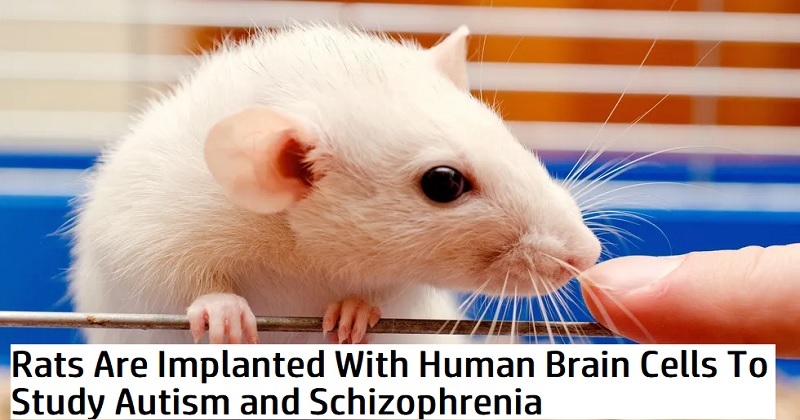
With the successful implantation of human brain cells into newborn rats, a new line of inquiry into difficult-to-treat psychiatric diseases like schizophrenia and autism is now possible.
Being unable to easily examine either humans or animals makes it incredibly difficult to study how these circumstances develop.
Scientists have already pieced together more than a dozen distinct brain regions using stem cells in lab dishes.
However, according to Sergiu Pasca, a professor of psychiatry and behavioural sciences at Stanford University and the study’s principal author, ‘neurons don’t develop to the size which a real neuron in an actual human brain would grow.’
Additionally, they are unable to foresee the signs that a fault would manifest after it is removed from a body.
To circumvent these limitations, organoids, which are collections of human brain cells, were implanted into the brains of young rats.
The age of the rats was crucial since human neurons have previously been implanted into adult rats, but an animal’s brain stops developing at a certain age, restricting the integration of implanted cells.
‘We discovered that these organoids can grow relatively large, become vascularized (receive nutrition) by the rat, and can cover about a third of a rat’s (brain) hemisphere by transplanting them at these early stages,’ stated Pasca.

Post Your Comments